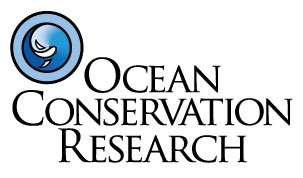Close to two years ago we reviewed and submitted comments to a Draft Environmental Impact Statement (DEIS) five-year survey plan for the offshore uses of the Atlantic Seaboard issued by the Bureau of Offshore Energy Management (BOEM). At the time…
Author: admin
Atlantic G&G PEIS Shortcomings: 2014
Summary of Atlantic Geological and Geophysical Programmatic Environmental Impact Statement Shortcomings: The PEIS should be reevaluated in the context of the most up-to-date NOAA Acoustic Guidelines. These guidelines have just recently been reviewed by the public and stakeholders whose…
One more day on Earth
Guest Post on Mission Blue: UN IMO Shipping Noise Standards
I was invited to write a guest post on the new IMO standards for the Mission Blue website. The upshot is that the United Nations International Maritime Organization (IMO) adopted a set of noise guidelines that if followed by member…
Beaked whale strandings associated with NATO navy exercises
Save the Date! April 19: Let’s Celebrate!
We have moved into a fantastic new office space in San Rafael. To celebrate we are inviting our friends and supporters to join us on April 19 for live music, drinks, and appetizers from 5pm – 9pm at our digs…
Welcoming a new staff member to OCR
This week Kathi Koontz began working with us in our new office in San Rafael, CA. She comes on with the title “Program Director” but as we all do here, Kathi wears a lot of hats. I’ve known her as…
Fish Ears and Ocean Noise
Although much of the concerns about ocean noise orbits around the impact of noise on marine mammals, I have been equally concerned about the impacts of noise on the fish. At first brush fish don’t seem as charismatic as whales and dolphins; but as a class, fish are rather amazing. They’re also a pretty important feature in marine ecosystems (and the feeding habits of other vertebrates – like us humans). So while public sentiment has driven a lot of research on the impacts of noise on marine mammals (and the resulting protective regulations) fish are also subject to the impacts of human-generated noise.
This shows up occasionally when fishing catches plummet after seismic surveys, or after research team finds that larval fish imprint and navigate to sounds, including sounds that are not natural to their habitat. Noise impacts on fish came up again last week in a published study finding that the recorded sound of ship noise disrupted feeding behavior and foraging success of two species of freshwater fish.
I have a few technical bones to pick with the study: The tanks were much smaller than the wavelengths of most of the disruptive sounds, and the source of ship noise (played back through speakers) would not typically be in such close proximity to the impacted subjects. But it isn’t really too surprising that unnatural noise disrupts fish behavior; these animals depend on acoustical energy to sense their surroundings – finding prey, avoiding predation, establishing their relations with others, etc. And the paper does provide some numbers to substantiate the case.
With our current state of knowledge about how and what fish do with the sounds they hear it would be difficult to predict how any particular sound might impact any fish in their particular ecosystems. But we know that fish are sound-sensitive so we can assume that they will interact with the sounds of their surroundings. If the sounds are introduced by non-biological sources, it would be a good idea to know how fish respond.




